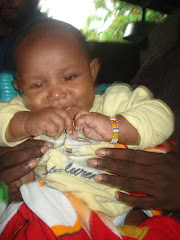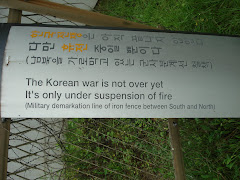Friday, November 8, 2013
General Seminary Alumni/ae Memorial Eucharist Sermon
Chapel of the Good Shepherd
Br. Clark Berge, SSF
So here we are, at last, no thanks to Sandy. Storms strike and things get messed up as we all know. But storms, whether meteorological or political or emotional or theological, raise questions and challenges. God help us, we can’t go back to business as usual. But as we clean and sort and then re-order and re-build our houses, relationships, or our own serenity we have to take into account what that storm (which ever) was about and how we are being called to live. In terms of last year’s storm, climate change, petroleum-based lifestyles and other issues that have become part of the critique are forcing the question of how we are to live. The same is true with death. Like storms, many times it is unexpected, or we only get a few brief days or hours to accept the inevitable breaking over us. Every Memorial Eucharist is an example of how Christians sort through life, proclaim the goodness and value of everyone and move forward into an enlarged life, this one is no exception. So what are we being called to consider? What core values and teachings can help us to know and live more fully into the mystery and joy of our Christianity?
We are reminded in Wisdom that the death of the righteous is not a disaster. We hear the assurances from time immemorial that they are at peace. They have access now to blessings where there is no pain or grief. Fortunately we don’t read the next passage from Wisdom which is all about the destiny of the wicked. We impute righteousness to our dead, which is the least we can do. Because we don’t really know what happens after death. When we inculcate in ourselves and our community the values of magnanimity and charity, wishing the best for the dead, it changes us. We live more forgivingly, graciously. We can let go of them with joy and gratitude. Perhaps we even feel called to live more recklessly in a Spirit-led way, taking risks on happiness, beauty, joy that might not be anticipated in the conventional calculus of success. As we can infer from the book of Wisdom, our holiest hopes and values can be a charter for our lives. As we pray, so we long to live.
For me the choice to live a more reckless, Spirit-led life (my decision to answer the call to become a friar), didn’t spring from a particular death, but from a dawning awareness that I would someday die; even at 29 I thought that might happen sometime! I didn’t want to look back at the end with regret over an invitation spurned, a glimpse of something I feared to grasp! So I say live boldly, be compassionate, forgive others. It is how we make God known to others and encourage them in their journey.
The Gospel of John defines salvation as inclusive. Jesus says there are many rooms in my Father’s house. Thus it is in heaven, so it must be on earth. We must make room for others, suspending judgment and acknowledging God’s ways are higher and better than our ways. We don’t have to condone everything we just don’t damn people. Often it is we ourselves who have to change. Humility is a great thing when you are talking about salvation. And Jesus not only talked about it he showed it, demonstrating inclusivity, welcoming tax collectors, women taken in adultery, Roman centurions, lepers—you know all those Bible stories too. I think he is saying at least in part “Do as I do” when he says “I am the way, the truth and the life.” Certainly you can’t go wrong casting your net wide to bring all people into the loving embrace of God through Jesus Christ.
This connection between death and our ministry—the spur to evaluate our lives perhaps—is very interesting. Thinking back over the lives of the alumni I knew, I think about my life. As I find out about what these people’s lives were like I am often astounded by the beauty of them all, the faithfulness they showed. I think about all the lives that were touched, sacraments celebrated, sore hearts healed, work for social justice. And I also think about how many of them probably struggled with futility. They probably wrestled with a sense of failure, taking criticism to heart faster than praise. They may have wondered, at an early morning Eucharist with only the sexton there, if it was worth it. A few had brilliant careers, but so many of us don’t—in our own estimation. So I want to remind us that in the big picture each and every one of us is a kind of miracle. At the end it won’t be about the grades you got in seminary, balanced parish budgets or mastery of the latest technological gadgets. (At least I ashamed at my inability to understand how the things work and sometimes mask my confusion and shame by insisting they are a threat to the spiritual life or something.) At the end life and ministry is about love. Love will heal our sense of failure. Love will magnify every act to reveal the power behind it. Jesus said elsewhere whatever you do for the least of these my brothers and sisters you do to me. That puts ultimate value on every little thing.
It isn’t even so much about how much we love, but it is about how much God loves us. God’s love has a way of burning away the “Yes, but’s…” the qualifications we put in the way of really experiencing love. It’s all about God’s initiative. I believe God’s love is so great that we will find peace. No matter how difficult or tormented the life, we always say that they are at peace now. I think we say this so that we, the living, may find peace too. That’s the way it is with God’s love. They will find rest; we are promised rest too. They will find new frontiers of existence; we are invited to discover the rhythms of redeeming grace. At this feast today, our Eucharistic feast, it is appropriate to speculate about the heavenly banquet. I am sure we will find the people we least expect to meet there, sitting right next to us and it will be okay. Better, it will be a cause for joy because we will no longer see them as a source of aggravation or provocation. We will have the larger vision, the magnanimous perspective of God’s love. What better memorial to our departed brothers and sisters than to practice all that now? I am saying, God’s love is a source of power to transform our lives. Let it transform your life. Cooperate with it! A fundamental value of our faith is to open our hearts and be changed by God’s grace in order to grow more and more into the image and likeness of God: love is a mystery that animates every bit of what we are about in this place today, and have been for so many years.
Someday our names will be read here. Don’t be anxious. Pray with trust and gratitude and know that our life is God’s work in God’s time. Still Jesus calls us over life’s stormy seas. Follow the Spirit’s lead; turn a deaf ear to power and prestige and look out for the poor ones, the sick ones, the outcasts. You can always do those things. And let the Church sing out with gratitude as we do today: well done, good and faithful servant.
Br. Clark Berge, SSF
So here we are, at last, no thanks to Sandy. Storms strike and things get messed up as we all know. But storms, whether meteorological or political or emotional or theological, raise questions and challenges. God help us, we can’t go back to business as usual. But as we clean and sort and then re-order and re-build our houses, relationships, or our own serenity we have to take into account what that storm (which ever) was about and how we are being called to live. In terms of last year’s storm, climate change, petroleum-based lifestyles and other issues that have become part of the critique are forcing the question of how we are to live. The same is true with death. Like storms, many times it is unexpected, or we only get a few brief days or hours to accept the inevitable breaking over us. Every Memorial Eucharist is an example of how Christians sort through life, proclaim the goodness and value of everyone and move forward into an enlarged life, this one is no exception. So what are we being called to consider? What core values and teachings can help us to know and live more fully into the mystery and joy of our Christianity?
We are reminded in Wisdom that the death of the righteous is not a disaster. We hear the assurances from time immemorial that they are at peace. They have access now to blessings where there is no pain or grief. Fortunately we don’t read the next passage from Wisdom which is all about the destiny of the wicked. We impute righteousness to our dead, which is the least we can do. Because we don’t really know what happens after death. When we inculcate in ourselves and our community the values of magnanimity and charity, wishing the best for the dead, it changes us. We live more forgivingly, graciously. We can let go of them with joy and gratitude. Perhaps we even feel called to live more recklessly in a Spirit-led way, taking risks on happiness, beauty, joy that might not be anticipated in the conventional calculus of success. As we can infer from the book of Wisdom, our holiest hopes and values can be a charter for our lives. As we pray, so we long to live.
For me the choice to live a more reckless, Spirit-led life (my decision to answer the call to become a friar), didn’t spring from a particular death, but from a dawning awareness that I would someday die; even at 29 I thought that might happen sometime! I didn’t want to look back at the end with regret over an invitation spurned, a glimpse of something I feared to grasp! So I say live boldly, be compassionate, forgive others. It is how we make God known to others and encourage them in their journey.
The Gospel of John defines salvation as inclusive. Jesus says there are many rooms in my Father’s house. Thus it is in heaven, so it must be on earth. We must make room for others, suspending judgment and acknowledging God’s ways are higher and better than our ways. We don’t have to condone everything we just don’t damn people. Often it is we ourselves who have to change. Humility is a great thing when you are talking about salvation. And Jesus not only talked about it he showed it, demonstrating inclusivity, welcoming tax collectors, women taken in adultery, Roman centurions, lepers—you know all those Bible stories too. I think he is saying at least in part “Do as I do” when he says “I am the way, the truth and the life.” Certainly you can’t go wrong casting your net wide to bring all people into the loving embrace of God through Jesus Christ.
This connection between death and our ministry—the spur to evaluate our lives perhaps—is very interesting. Thinking back over the lives of the alumni I knew, I think about my life. As I find out about what these people’s lives were like I am often astounded by the beauty of them all, the faithfulness they showed. I think about all the lives that were touched, sacraments celebrated, sore hearts healed, work for social justice. And I also think about how many of them probably struggled with futility. They probably wrestled with a sense of failure, taking criticism to heart faster than praise. They may have wondered, at an early morning Eucharist with only the sexton there, if it was worth it. A few had brilliant careers, but so many of us don’t—in our own estimation. So I want to remind us that in the big picture each and every one of us is a kind of miracle. At the end it won’t be about the grades you got in seminary, balanced parish budgets or mastery of the latest technological gadgets. (At least I ashamed at my inability to understand how the things work and sometimes mask my confusion and shame by insisting they are a threat to the spiritual life or something.) At the end life and ministry is about love. Love will heal our sense of failure. Love will magnify every act to reveal the power behind it. Jesus said elsewhere whatever you do for the least of these my brothers and sisters you do to me. That puts ultimate value on every little thing.
It isn’t even so much about how much we love, but it is about how much God loves us. God’s love has a way of burning away the “Yes, but’s…” the qualifications we put in the way of really experiencing love. It’s all about God’s initiative. I believe God’s love is so great that we will find peace. No matter how difficult or tormented the life, we always say that they are at peace now. I think we say this so that we, the living, may find peace too. That’s the way it is with God’s love. They will find rest; we are promised rest too. They will find new frontiers of existence; we are invited to discover the rhythms of redeeming grace. At this feast today, our Eucharistic feast, it is appropriate to speculate about the heavenly banquet. I am sure we will find the people we least expect to meet there, sitting right next to us and it will be okay. Better, it will be a cause for joy because we will no longer see them as a source of aggravation or provocation. We will have the larger vision, the magnanimous perspective of God’s love. What better memorial to our departed brothers and sisters than to practice all that now? I am saying, God’s love is a source of power to transform our lives. Let it transform your life. Cooperate with it! A fundamental value of our faith is to open our hearts and be changed by God’s grace in order to grow more and more into the image and likeness of God: love is a mystery that animates every bit of what we are about in this place today, and have been for so many years.
Someday our names will be read here. Don’t be anxious. Pray with trust and gratitude and know that our life is God’s work in God’s time. Still Jesus calls us over life’s stormy seas. Follow the Spirit’s lead; turn a deaf ear to power and prestige and look out for the poor ones, the sick ones, the outcasts. You can always do those things. And let the Church sing out with gratitude as we do today: well done, good and faithful servant.
Subscribe to:
Post Comments (Atom)






No comments:
Post a Comment